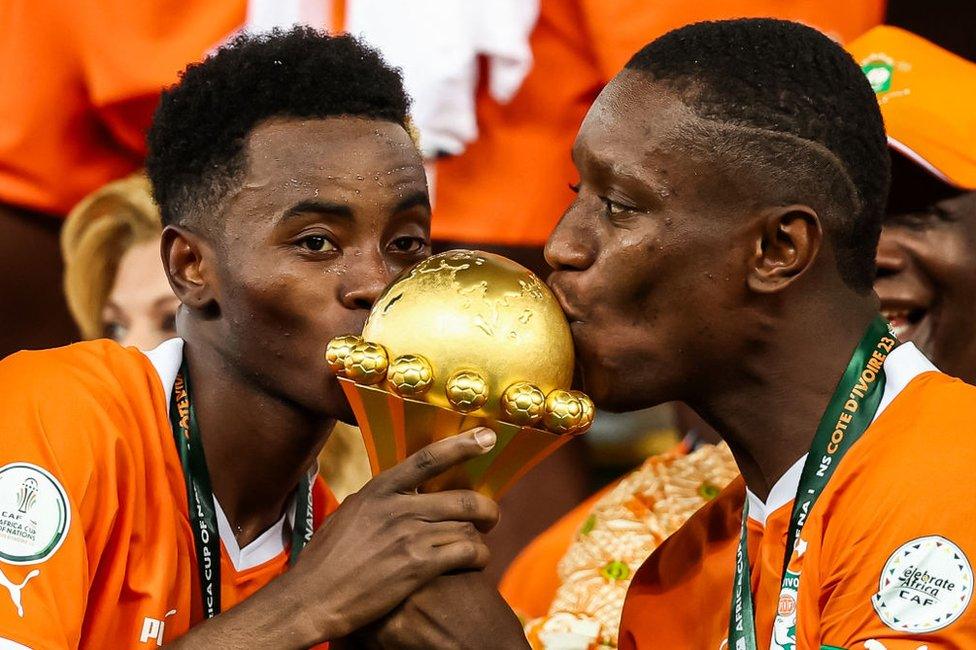Afcon: Ivory Coast and Nigeria players get cash, villas and honours
- Published

More people than ever watched this year's tournament
Cash, houses and honours are being bestowed on footballers from Ivory Coast and Nigeria, after Sunday's riveting Africa Cup of Nations final.
Every player in Ivory Coast's winning squad will pocket $82,000 (£65,000) and get a villa worth a similar amount, the presidency announced.
"You have brought happiness to all Ivorians, bravo, bravo," said President Alassane Ouattara of Ivory Coast, which hosted the pan-African tournament.
Nigeria also got a heroes' welcome.
Although their 2-1 loss in the final spelled heartbreak for the Super Eagles' millions of fans at home and in the diaspora, their efforts are being handsomely rewarded by President Bola Tinubu.
Each member of the Nigerian squad has received one of the country's highest honours - the Member of the Order of the Niger. The president is also giving them each an apartment and a piece of land near the capital, Abuja.
Third-placed South Africa are also set to receive about $52,000 per player, according to local media.
It is not clear what cash payment Nigeria's players are to receive from the state purse.
But all of the perks listed above are in addition to the usual prize money doled out by the Africa Cup of Nations, which they say they have boosted by 40% since the last tournament.
This means that winners Ivory Coast get $7m, runners-up Nigeria get $4m, semi-finalist South Africa and DR Congo each get $2.5m, while the four teams who made the quarter-finals take home $1.3m each.
This year's Africa Cup of Nations enjoyed the highest viewing numbers in its 67-year history - thanks to bigger broadcasting and commercial deals, and social media buzz. Almost two billion people are said to have watched worldwide.
Analysts hope the global appreciation for Africa's footballing flair will translate into more starting slots for African teams at future World Cups.
As it stands, Africa has only nine World Cup spots to Europe's 13, despite the fact these two continents have a near-identical number of Fifa-affiliated countries.
African national teams have in the past complained their salaries and bonuses have not been paid.
The Cameroon side who won global admiration for their quarter-final performance against England in the 1990 World Cup waited over 30 years to get houses they were promised, by which time their captain had died.
At last year's Fifa Women's World Cup, South African footballers won a pay dispute after sitting out a match in protest. Their hastily assembled substitutes had included a 13-year-old girl.